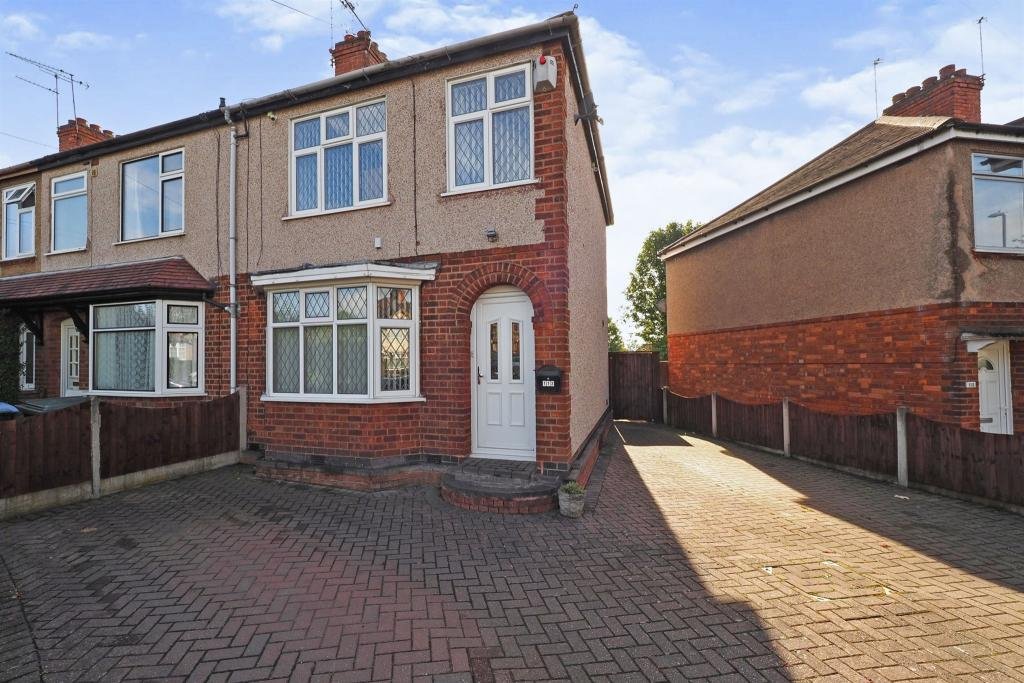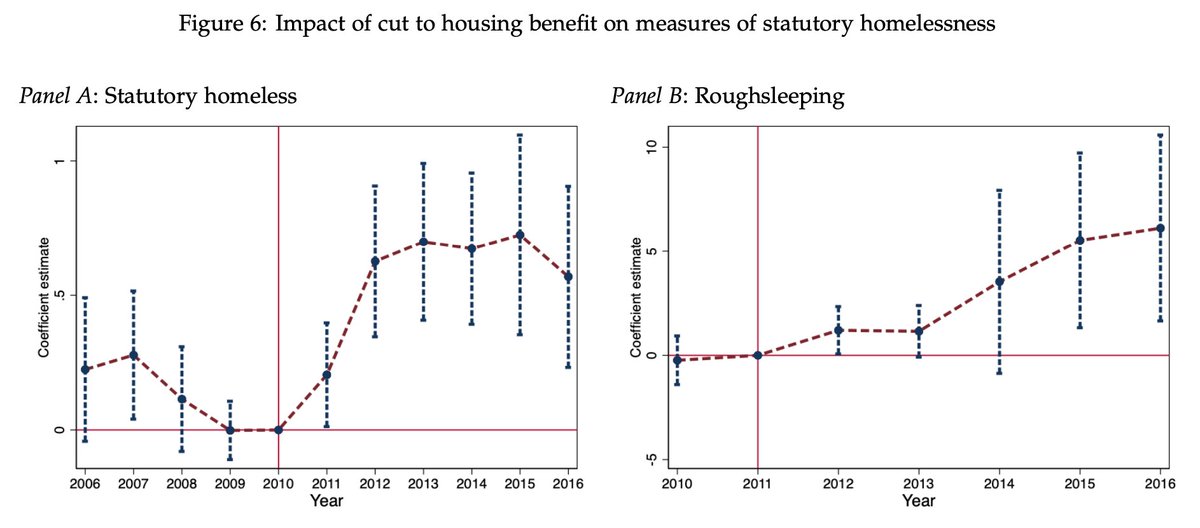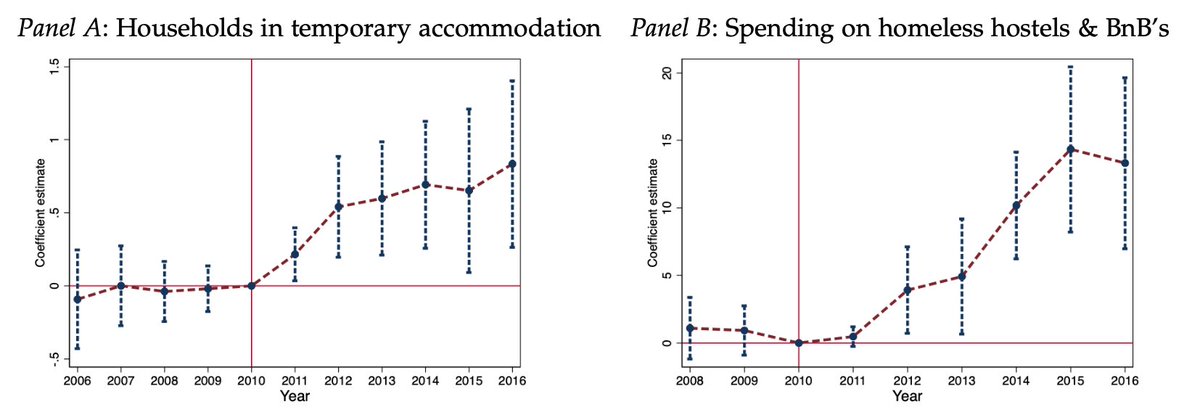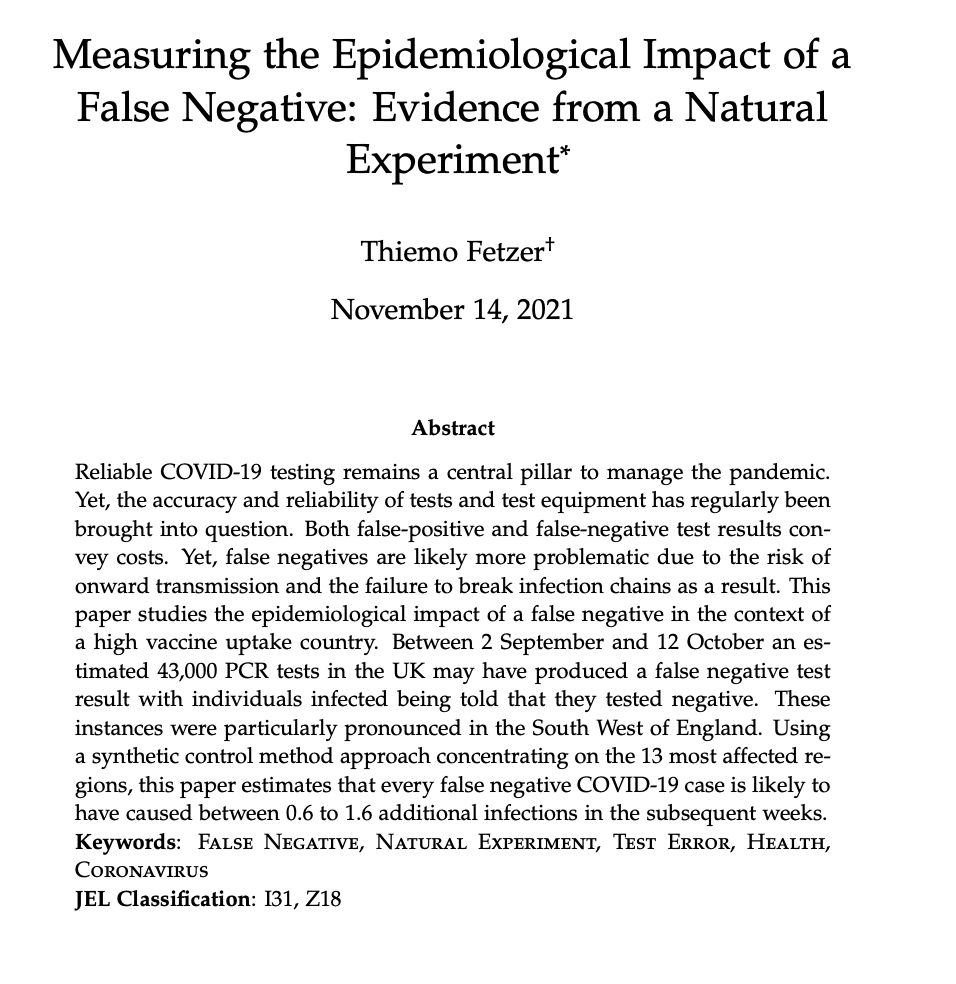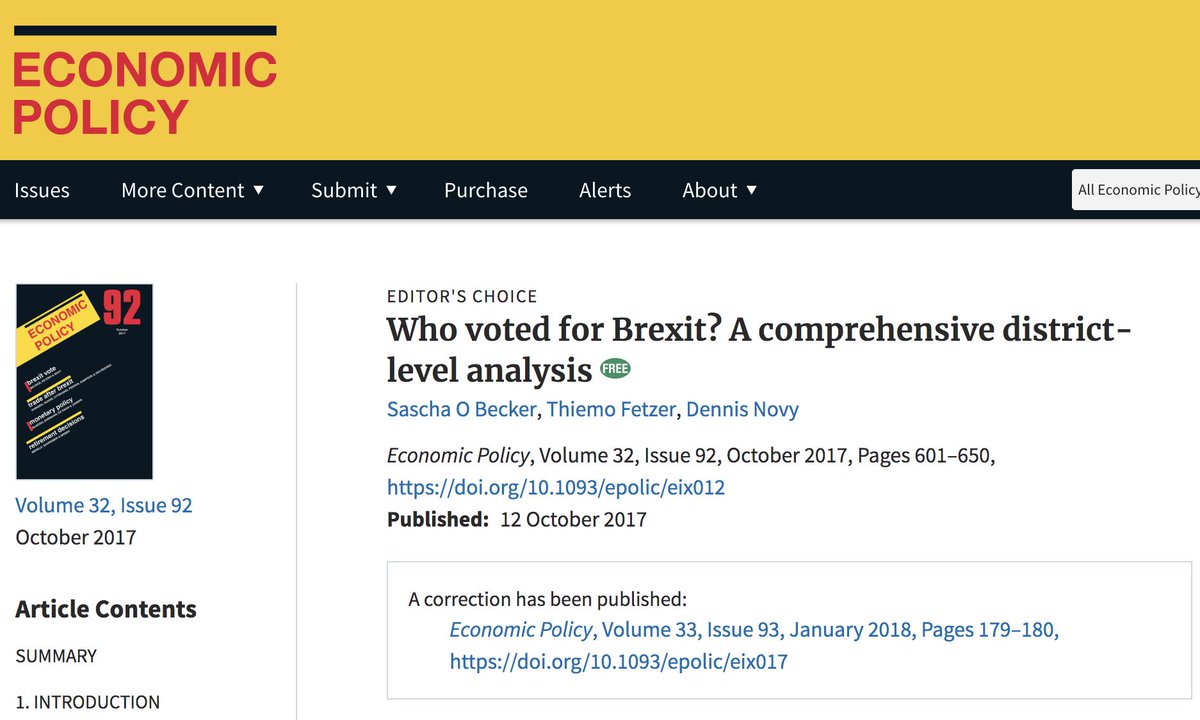
After 5 months of intense work the @FT published this piece that involved a ton of hands-on work. Check it out ➡️ ig.ft.com/uk-energy-effi…. It looks sleek but I do want to raise a few further points that I think could be discussed differently
#EnergyCrisis #EnergyBills #energy


#EnergyCrisis #EnergyBills #energy
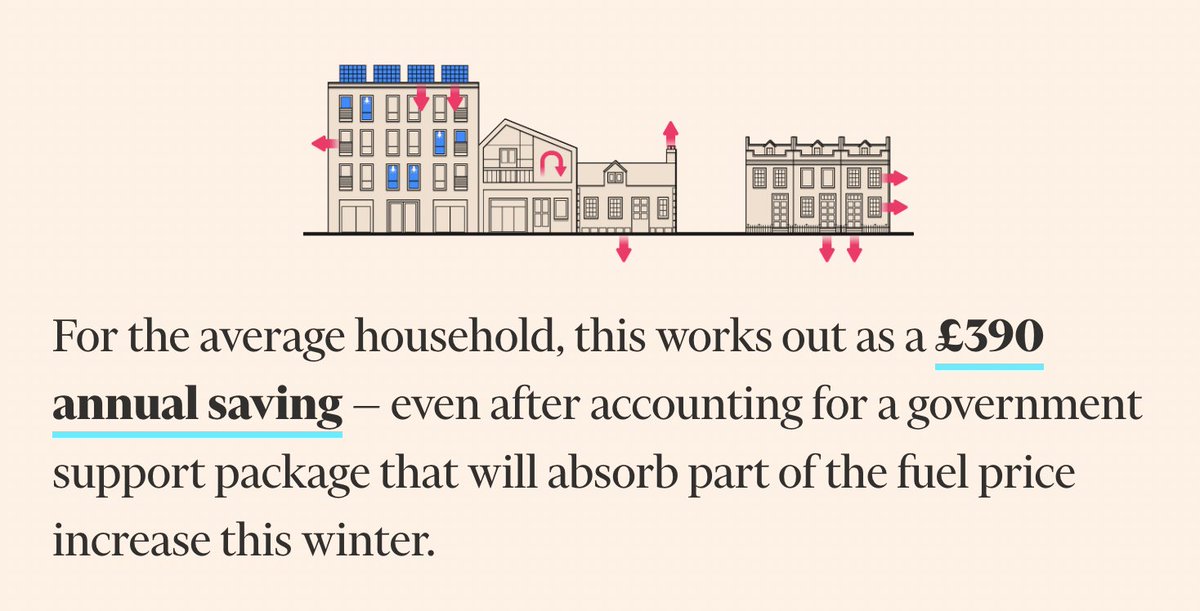
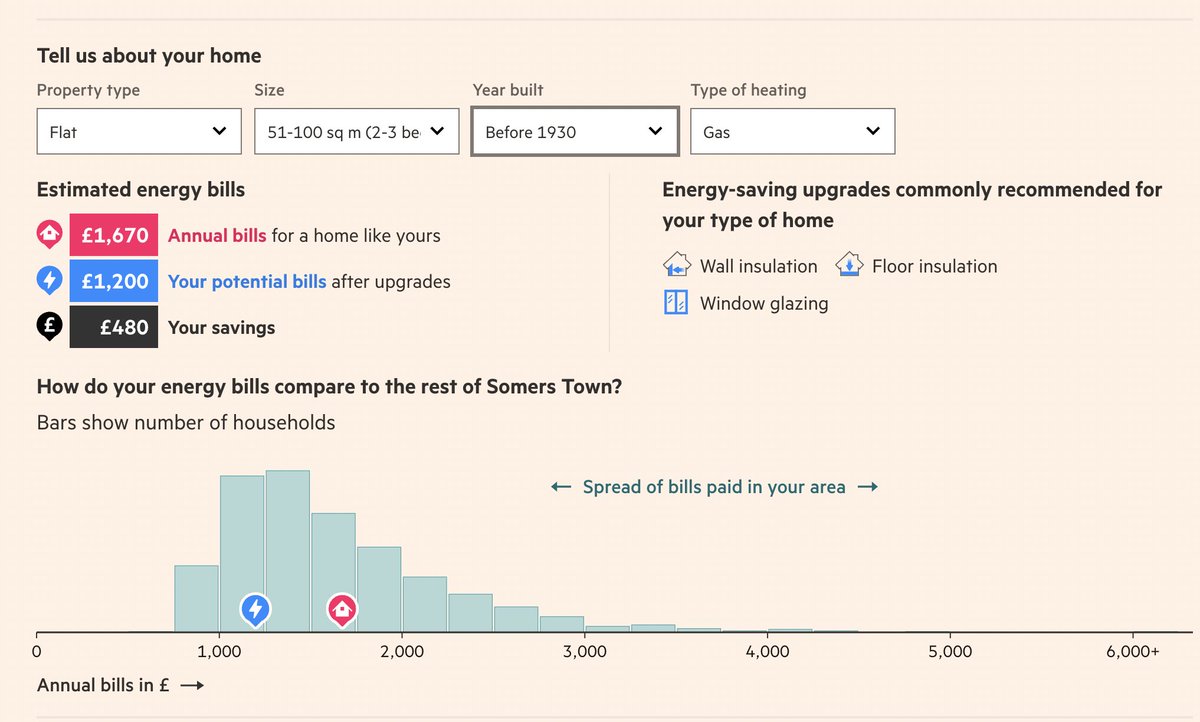

Point 1: We provided bill estimates under multiple price scenarios. Treating the #EnergyPriceGuarantee as the "price" I find problematic. The EPG implies a #EnergySubsidy benefitting mostly the well off that we all need to fund through #austerity and/or higher #taxation. So this
does not represent the full economic cost. It also ignores carbon prices which we all need should be MUCH higher. Using estimates based on the Oct 2022 Ofgem price cap ~ £3500 per year which is inline with predictions for most of 2023 (see forecasts from @CornwallInsight). 

With the £3500 per yr (that is still 3 x more than 2021 prices) we are closer to 14bn. Now the estimates are obtained from 13.7 million properties, representing around 50% of building stock. Scaling back to population would yield savings closer to 20-28bn per yr.
We have done
We have done
a somewhat sophisticated reweighing. Our estimates may be conservative. Properties without EPC (not included in our data) at least based on @beisgovuk data have higher "treatment effects" of energy efficiency measures suggesting their starting energy efficiency level may be worse
Point 2: #CarbonPrices - we tentatively quantified the CO2 savings implicit in the energy savings that could be realized if properties were retrofitted. At current CO2 prices of around £75/ton this is an additional saving of up to £3bn/yr that as society, we should incorporate.
Many media outlets unfortunately do often resort to "accounting economics" or "spreadsheet economics". I do think there is a genuine problem & economists as a profession need to do much more to explain the concept of a counterfactual and externalities & their costs much better.
Point 3: Energy prices may go down again - I hope so, but hydrocarbon prices must remain high in order to ensure we stand a chance to avert the worst of #ClimateCrisis. The #RussianUkrainianWar essentially anticipates a much higher level of #CarbonTaxation that we should embrace.
Point 4: Distributional effects/heterogeneity. In the working paper (tinyurl.com/4dvft7es) we study the correlates of energy savings. Among others we show energy savings potential is higher in well-off areas & current policy weakens incentives to invest in #EnergyEfficiency. 

The distributional patterns and differences were not discussed at all. Its a tricky one, because ultimately it requires strengthening incentives of better-off households to invest in retrofitting. This doesnt make for nice political optics but is the right thing to do...
In this paper tinyurl.com/3vfh2rxd I discussed a set of policy options that could be quite cheap and could work. There is a U-shape pattern as well with quite poor areas also having notable retrofit potential. We need to understand the barriers to adoption of such measures.
Point 5: Taking this all together, the average savings is likely MUCH higher than the quoted headline figure. Taking the full cost plus the CO2 savings we are talking about AVG savings of at least of £600 per year with huge heterogeneity. This is the unconditional avg!
To understand what works & what doesnt research & evidence-based policy making is vital. I discussed the broad research agenda around the EPG, retrofitting & the context in detail at a @NIESRorg event with @jagjit_chadha, @ben_moll & @AdrianPabst1 video
There is more in the works. The work and outputs will be available on trfetzer.com/energy-crisis-…. For geeks: the website at the @FT may not seem much. But behind the scenes there is a TON going on. The backend required creating nearly 1.4 million files.
It is great to learn how data journalists like @niko_tinius @ejhollowood @jburnmurdoch @samjoiner work. Academics working together with data journalists may be really important going forward. Data and evidence can help cut through the noise. Onwards and upwards
• • •
Missing some Tweet in this thread? You can try to
force a refresh


